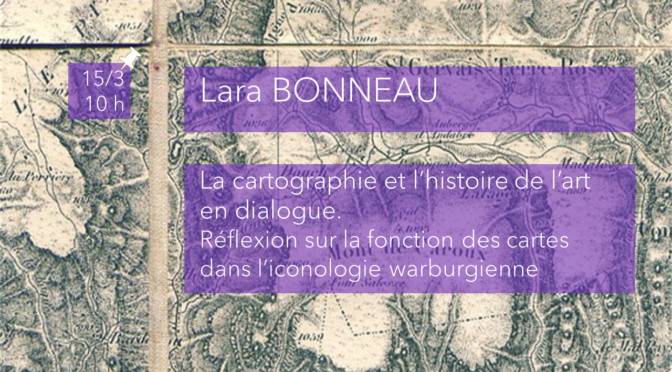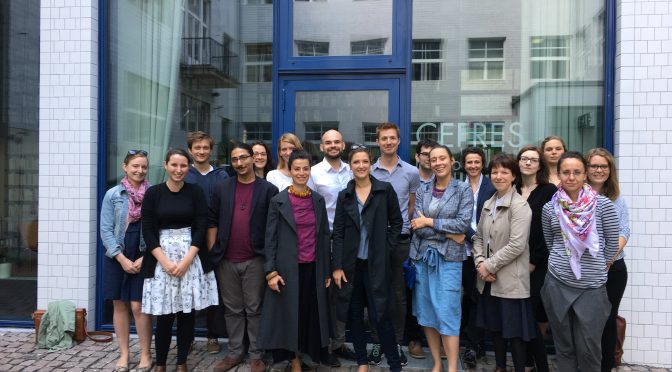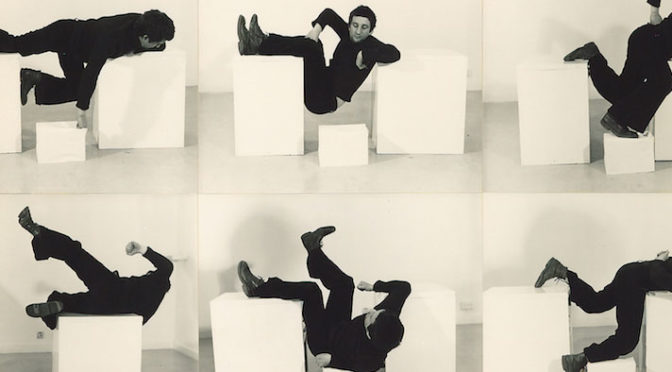
Cartography and art history in dialogue. Reflections on the functions of maps in Warburgian iconology
Seventh session of the 2023-2024 CEFRES Francophone Interdisciplinary Seminar The map and the border
In 2023, we would like to start by beginning by questionning the very act of bordering and representing (a territory, a period, a trajectory), in short, thanks to the interdisciplinarity of our respective disciplines, to question the map and the border.
Location: CEFRES Library, Na Florenci 3, Prague 1
Dates: Friday, June 14th, 10 – 11.30 am
Language: French
Speaker : Lara BONNEAU, Institute of Philosophy of Czech Academy of Sciences (FLÚ – AV ČR), associate researcher at CEFRES
Discussant : Danièle COHN, Université Paris 1
Has the tendency towards ornamentation in the graphic gesture been an obstacle to the scientific development of cartography? In other words, has cartography had to liberate itself from the artistic dimension, which is too imbued with a sensitive end emotional life, to become a planimetric abstraction? These were central questions for the German art historian Aby Warburg, who saw the cartographic gesture as one of the ways of distancing oneself psychologically from the senses. By giving contours to what is presented as moving, changing, even chaotic in perceptual experience, by assigning it a place within an order (kosmos), and by presenting it in space rather than in time, mapping has a psychological function: it gives the subject points which help him to anchor himself and distance himself from reality. Nevertheless, as the demon-populated astrological natal charts demonstrate, cartography cannot totally abolish the dimensions of fear and desire of our relationship with the world and the universe. Maps have a sensitive “cosmetic” dimension, which is perhaps not directly opposed to the ambition to bring cosmic order. In order to study how these demons moved historically, providing lasting fertile ground for the iconographic tradition as much as for scientific attempts to conquer the space of thought, Aby Warburg was led to draw… maps. Maps of the migratory routes of motifs and styles, of the “formules of pathos” from Athens to Babylon, from Babylon to Southern and the Northern Europe. Drawing in particular on the recent work od Phillipe Despoix (2023), we shall try to present the function of cartography in Warburgian iconology.
Second session of IMS / CEFRES epistemological seminar of this semester led by
Florence Vychytil-Baudoux (EHESS / CEFRES)
Categories of Identification and Representation of Self
Where: CEFRES Library – Na Florenci 3, Prague 1
When: Wednesday 24 October 2018 from 4:30 pm to 6 pm
Language: English
Texts:
- Brubaker Rogers, Frederic Cooper: „Beyond Identity“, Theory and Society, 29 (2000): 1-47.
- Traduction française: Brubaker Rogers, „Au-delà de ‘l’identité’“, Actes de la recherche en sciences sociales, 139 (2001-4): 66-85.

After a year spent at CEFRES, CEFRES 2016/17 PhD students will present to their fellow colleagues the outcomes of their research in a joint concluding seminar, and welcome the members of CEFRES team 2017/2018.
Place and time: Na Florenci 3, building C, conference room, 3rd floor, between 2 and 5:30 PM
Language: English
Program
2:00 Mátyás Erdélyi : Modernity, Capitalism, and Private-Clerks: The Philosophy of Money in Austria-Hungary
2:30 Filip Herza : Freak Shows and the Collective Body of Nation in Prague 1860s-1930s: The Concept of Disability and Nationalism Studies
3:00 Katalin Pataki : From Victims to Collaborators: the Dissolution Procedure of Mendicant Monasteries in the Hungarian Kingdom (1787-1793)
3:30 Coffee Break
4:00 Chiara Mengozzi (post-doctoral researcher): Literary Animals: Thinking Beyond Human, Reading Against Allegory
4:30 Magdalena Cabaj : From Hermaphrodite Writing to Intersex Writing
5:00 Lara Bonneau : Fall and Ascent: Reading Warburg with Binswanger

The first introductive session will be hosted by Jérôme Heurtaux (CEFRES’ director), Chiara Mengozzi (FF UK, associate researcher at CEFRES) and Mitchell Young (IMS FSV UK).
Jerôme Heurtaux and Mitchell Young will introduce the seminar and present general remarks about concepts and their uses in humanities and social sciences.
Chiara Mengozzi will review the achievement of the epistemological seminar so far, propose some ideas for the present academic year and briefly introduce the question of “migration” of concepts and theories from one discipline or context to another.
To introduce this session, we shall base our discussion on the following texts:
- John Gerring, “What Makes a Concept Good? A Criterial Framework for Understanding Concept Formation in the Social Sciences”, Polity 31-3, 1999, p. 357-393.
- Bastien BOSA, „Des concepts et des faits. La double contradiction des sciences sociales“, Labyrinthe 37 2011-2, p. 121-147.
To get the texts, please write to Claire Madl (claire[at]cefres.cz)
During this session, the program of the winter semester will be set up.

The first introductive session will be hosted by Jérôme Heurtaux (CEFRES’ director), Tomáš Weiss (IMS FSV UK) and Mitchell Young (IMS FSV UK) who will introduce the seminar and present general remarks about concepts and their uses in humanities and social sciences.
To introduce this session, we shall base our discussion on the following texts:
- John Gerring, “What Makes a Concept Good? A Criterial Framework for Understanding Concept Formation in the Social Sciences”, Polity 31-3, 1999, p. 357-393.
- Giovanni SARTORI, „ Concept Misformation in Comparative Politics“, The American Political Science Review, Vol. 64, No. 4. (Dec., 1970), pp. 1033-1053.
During this session, the program of the winter semester will be set up.
Session led by Edita Wolf.




